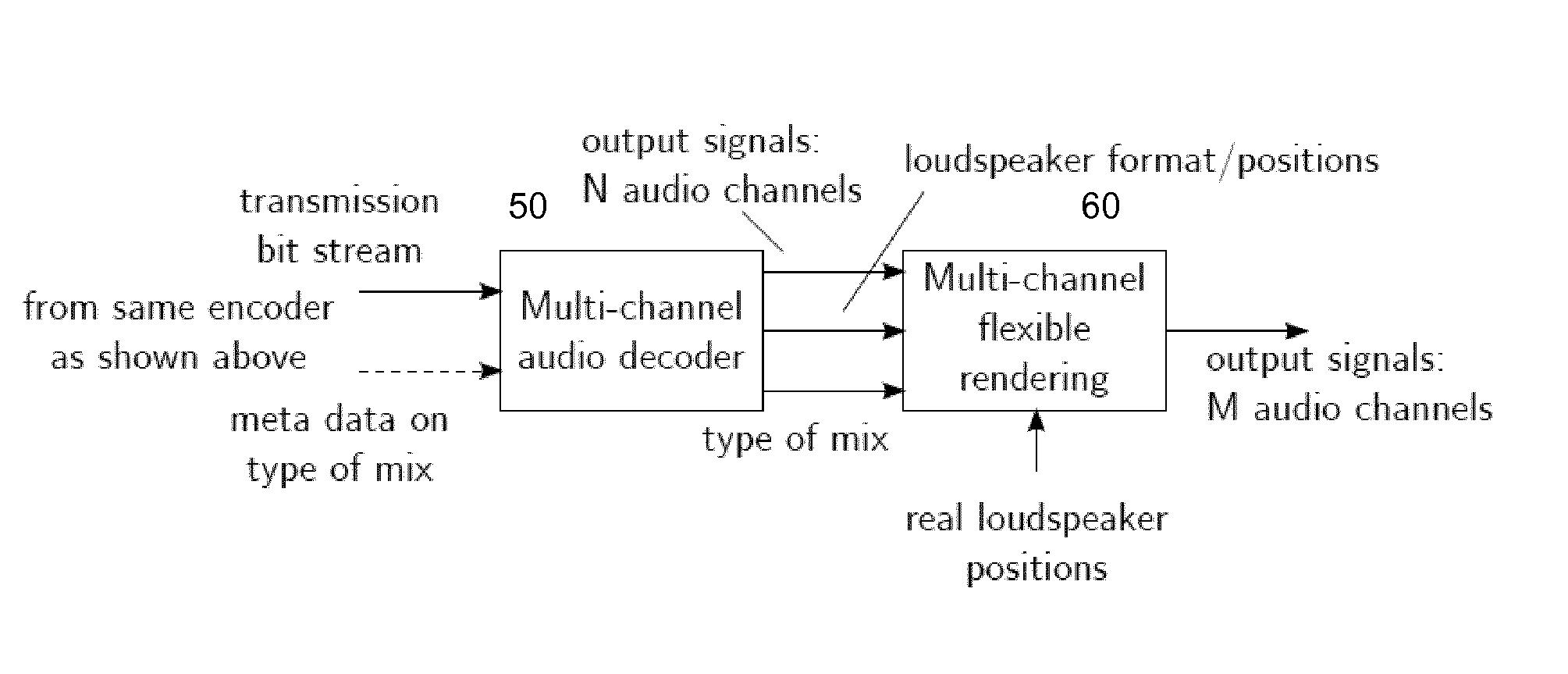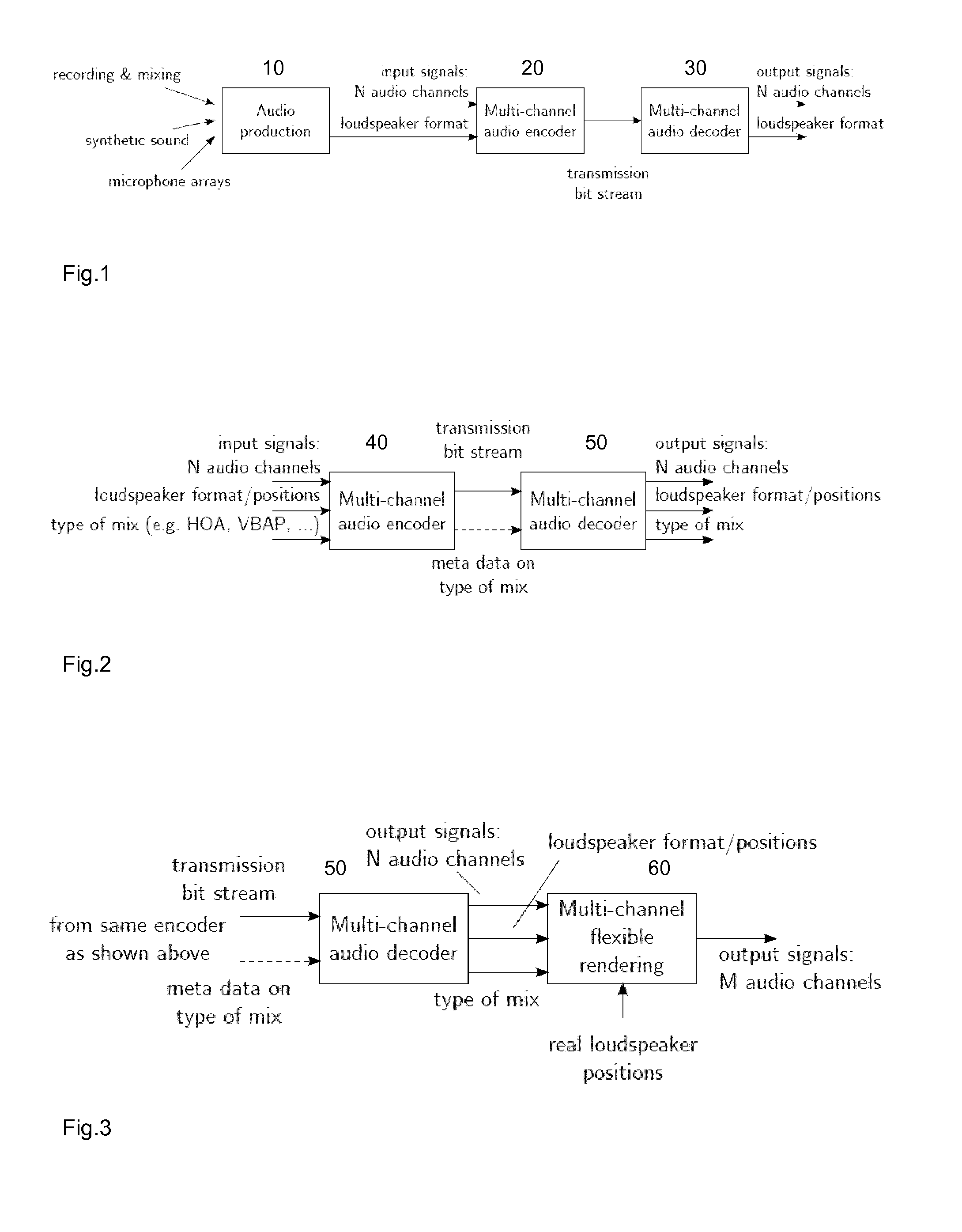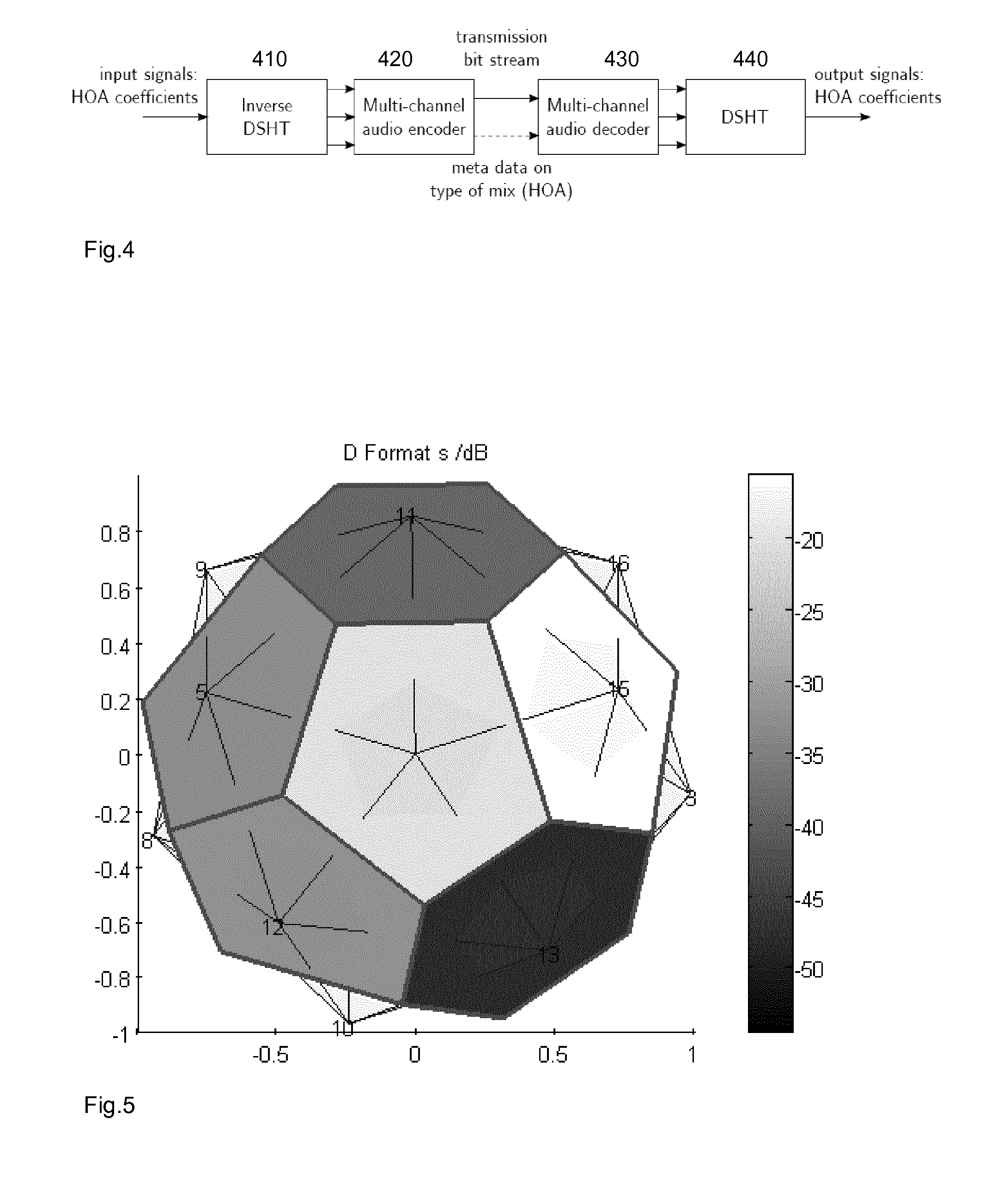Method and device for improving the rendering of multi-channel audio signals
a multi-channel audio and audio signal technology, applied in the field of audio compression, can solve problems such as lack of prior knowledge, and achieve the effect of optimizing decoding and/or rendering
- Summary
- Abstract
- Description
- Claims
- Application Information
AI Technical Summary
Benefits of technology
Problems solved by technology
Method used
Image
Examples
Embodiment Construction
[0022]FIG. 1 shows a known approach for multi-channel audio coding. Audio data from an audio production stage 10 are encoded in a multi-channel audio encoder 20, transmitted and decoded in a multi-channel audio decoder 30. Metadata may explicitly be transmitted (or their information may be included implicitly) and related to the spatial audio composition. Such conventional metadata are limited to information on the spatial positions of loudspeakers, e.g. in the form of specific formats (e.g. stereo or ITU-R BS.775-1 also known as “5.1 surround sound”) or by tables with loudspeaker positions. No information on how a specific spatial audio mix / recording has been produced is communicated to the multi-channel audio encoder 20, and thus such information cannot be exploited or utilized in compressing the signal within the multi-channel audio encoder 20.
[0023]However, it has been recognized that knowledge of at least one of origin and mixing type of the content is of particular importance ...
PUM
 Login to View More
Login to View More Abstract
Description
Claims
Application Information
 Login to View More
Login to View More - R&D
- Intellectual Property
- Life Sciences
- Materials
- Tech Scout
- Unparalleled Data Quality
- Higher Quality Content
- 60% Fewer Hallucinations
Browse by: Latest US Patents, China's latest patents, Technical Efficacy Thesaurus, Application Domain, Technology Topic, Popular Technical Reports.
© 2025 PatSnap. All rights reserved.Legal|Privacy policy|Modern Slavery Act Transparency Statement|Sitemap|About US| Contact US: help@patsnap.com



